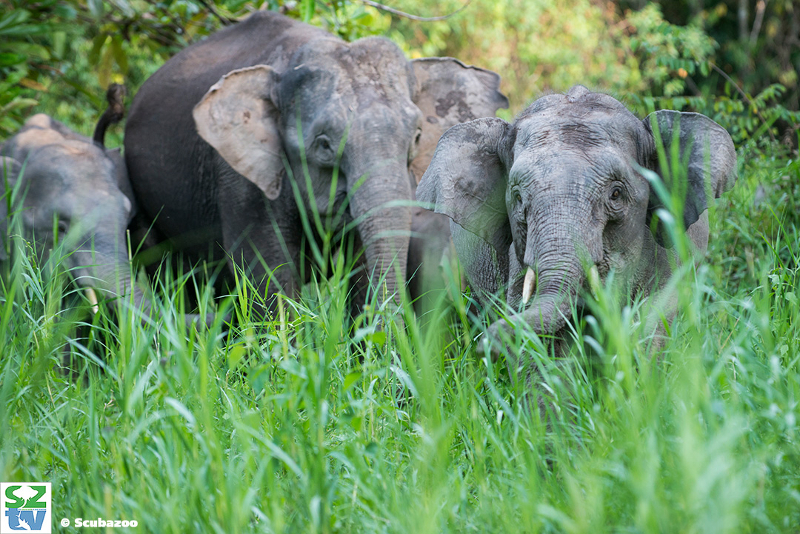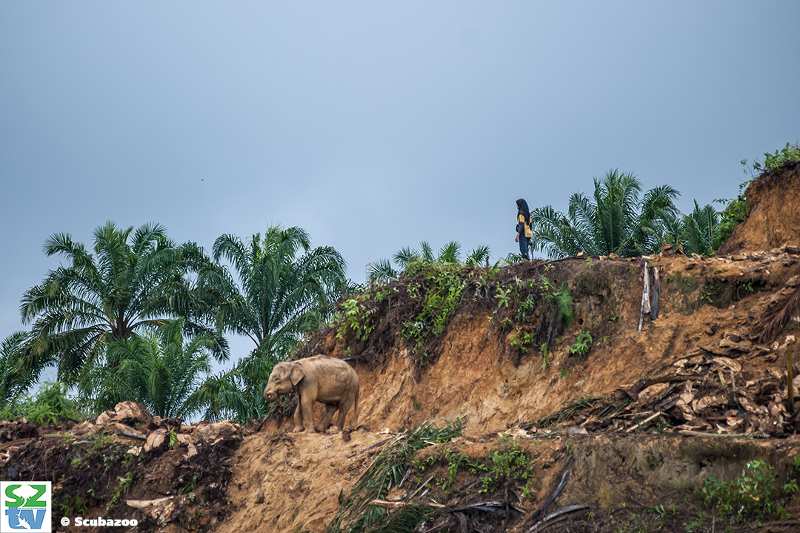KOTA KINABALU, Aug 7 – Undoubtedly one of the mega celebrities of Sabah’s animal kingdom, the elephants of Borneo are unwittingly carrying a lot of responsibility when it comes to conservation in the state.
Elephant specialist and PhD researcher Nurzhafarina Othman realises that their importance and popularity pave the way for other wildlife in Sabah’s jungles.
“Being a flagship species helps a lot in conservation. If we manage to protect more lands, more habitats for the elephants, that means other animals that live there could also benefit,” said Nurzhafarina, better known as Farina.
This makes her work trailing elephants even more important as it helps to indirectly shape conservation plans for all wildlife, and in webseries Borneo Jungle Diaries she talked about how the majestic animals play a role in Sabah’s conservation efforts.

The Borneo elephants are mercilessly hunted for their tusks, shot due to perceived threat, and are at risk of losing their habitat.
In the final episode of the series, host Aaron “Bertie” Gekoski and Farina risked life and limb to track down a family of elephants fitted with radio collars, whose lives provide crucial information to the Danau Girang Field Centre team about the Kinabatangan ecosystem.
In Sabah’s lower Kinabalu floodplains where wildlife is abundant, landscape fragmentation is one of the major issues, other than poaching, that threatens the animal’s natural habitat and movement, Danau Girang Field Centre founder Benoit Goossens said.
“The process of breaking up existing habitat into disconnected pieces automatically involves a reduction in the habitat area. Fragmentation increases isolation; by dividing animal populations, biodiversity is diminished, placing some species under serious pressure.
“Furthermore, many species need a minimum amount of territory, or a habitat patch, in order to find enough food and resources to survive,” he said.

Larger species, like elephants are especially at risk, and can be swiftly eliminated, as they cannot roam far enough to support their diets.
Farina recommended that the public be more mindful in their choices and practices, like ensuring they use sustainable palm oil and encourage sustainable ecotourism like using homestay schemes rather than restricting the tourist economy to hotels and wildlife centres.
“There is also a need for governmental support – so far there is no initiative or policies to help smallholders recover from the losses from when elephants damage their crops. Whilst elephant conservation is funded by a mix of government spending and global philanthropy, locals are forced to absorb the damage done by elephants trampling onto their plantations.
“We expect locals to understand why they need to live in harmony with the wildlife as if we are saying it is their responsibility to protect the elephants— while we, outsiders and tourists, including me— we live in the city, and don’t really do much to support them,” she said.

Human conflict can be resolved but it takes a lot of communication between all stakeholders of the industry, she said.
Catch all episodes of Borneo Jungle Diaries on SZtv’s website and Youtube (@ScubazooTV), as well as on the Facebook pages of SZtv (fb.me/scubazoo.tv) & DGFC.
Viewers are also encouraged to take part in the competition that is being held; by answering five questions correctly and stand to win a weekly prize.






















